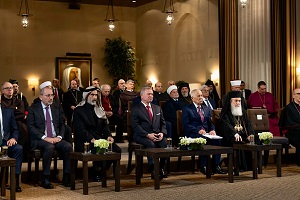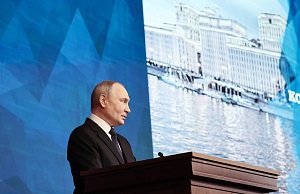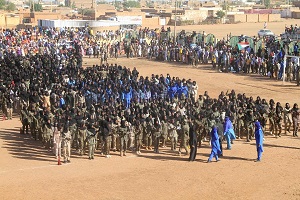Kofi Annan, Diplomat Who Redefined the U.N., Dies at 80

Alan Cowell, The New York Times
Kofi Annan, a soft-spoken and patrician diplomat from Ghana, who became the seventh secretary general of the United Nations, projecting himself and his organization as the world’s conscience and moral arbiter despite bloody debacles that left indelible stains on his record as a peacekeeper, died on Saturday. He was 80.
His death was confirmed by the Kofi Annan Foundation.
Awarded the Nobel Peace Prize in 2001, he was the first black African to head the United Nations, and led the organization for two successive five-year terms beginning in 1997 — a decade of turmoil that challenged the sprawling body and redefined its place in a changing world.
On his watch as what the Nobel committee called Africa’s foremost diplomat, the Berlin Wall collapsed, Al Qaeda struck New York and Washington, the United States invaded Iraq, and Western policymakers turned their sights from the Cold War to globalization and the struggle with Islamic militancy.
An emblem as much of the body’s most ingrained flaws as of its grandest aspirations, Mr. Annan was the first secretary general to be chosen from the international civil servants who make up the United Nations’ bureaucracy.
He was credited with revitalizing its institutions, crafting what he called a new “norm of humanitarian intervention,” particularly in places where there was no peace for traditional peacekeepers to keep, and, not least, in persuading Washington to unblock arrears withheld because of the profound misgivings about the body voiced by American conservatives.
His tenure was rarely free of debate and he was likened in stature to Dag Hammarskjold, the second secretary general, who died in a mysterious plane crash in Africa in 1961.
In 1998, Mr. Annan travelled to Baghdad to negotiate directly with Saddam Hussein over the status of United Nations weapons inspections, winning a temporary respite in the long battle of wills with the West but raising questions about his decision to shake hands — and even smoke cigars — with the dictator.
In fact, Mr. Annan called the 2003 invasion of Iraq illegal and suffered an acute personal loss when a trusted and close associate, the Brazilian official Sérgio Vieira de Mello, his representative in Baghdad, died in a suicide truck bombing in August 2003 that struck the United Nations office there, killing many civilians.
The attack prompted complaints that Mr. Annan had not grasped the perils facing his subordinates after the ouster of Mr. Hussein.
EDITORS’ PICKS
Opinion
Make Your Daughter Practice Math. She’ll Thank You Later.
War Without End
What the Mystery of the Tick-Borne Meat Allergy Could Reveal
While his admirers praised his courtly, charismatic and measured approach, Mr. Annan was hamstrung by the inherent flaw of his position as what many people called a “secular pope” — a figure of moral authority bereft of the means other than persuasion to enforce the high standards he articulated.
As secretary general, Mr. Annan, like all his predecessors and successors, commanded no divisions of troops or independent sources of income. Ultimately, his writ extended only as far as the usually squabbling powers making up the Security Council — the highest United Nations executive body — allowed it to run.
In his time, those divisions deepened, reaching a nadir in the invasion of Iraq. Over his objections, the campaign went ahead on the American and British premise that it was meant to disarm the Iraqi regime of chemical weapons, which it did not have — or, at least, were never found.
Iraq also brought embarrassment closer to home when reports began to surface in 2004 that Mr. Annan’s son, Kojo Annan, worked for Cotecna Inspection Services, a Geneva-based company that had won a lucrative contract in a vast humanitarian program supervised by the United Nations in Iraq and known as oil for food.
A commission led by Paul A. Volcker concluded that the secretary general had not influenced the awarding of the contract, but had not investigated aggressively once questions were raised.
The elder Mr. Annan said he took the commission’s findings as exoneration, but his reputation suffered, particularly in the eyes of adversaries in Washington.
In assessing his broader record, moreover, many critics singled out Mr. Annan’s personal role before becoming secretary general when he headed United Nations peacekeeping operations for four years from 1993 — a period that saw the killing of 18 American service personnel in Somalia in October 1993, the deaths of more than 800,000 Rwandans in the genocide of 1994, and the massacre of 8,000 Bosnian Muslims by Bosnian Serb forces at Srebrenica in 1995.
Latest News
-
 US, Qatar, Turkey, Egypt meet in Miami to discuss Gaza truce on Friday
US, Qatar, Turkey, Egypt meet in Miami to discuss Gaza truce on Friday
-
 King receives Christian, Muslim religious leaders from Jerusalem, Jordan ahead of Christmas
King receives Christian, Muslim religious leaders from Jerusalem, Jordan ahead of Christmas
-
 Putin says Russia will 'certainly' achieve its goals in Ukraine
Putin says Russia will 'certainly' achieve its goals in Ukraine
-
 Sellami: Jordan target Arab Cup glory against ‘strong’ Moroccan side
Sellami: Jordan target Arab Cup glory against ‘strong’ Moroccan side
-
 RSF destroying evidence of atrocities in Sudan - report
RSF destroying evidence of atrocities in Sudan - report